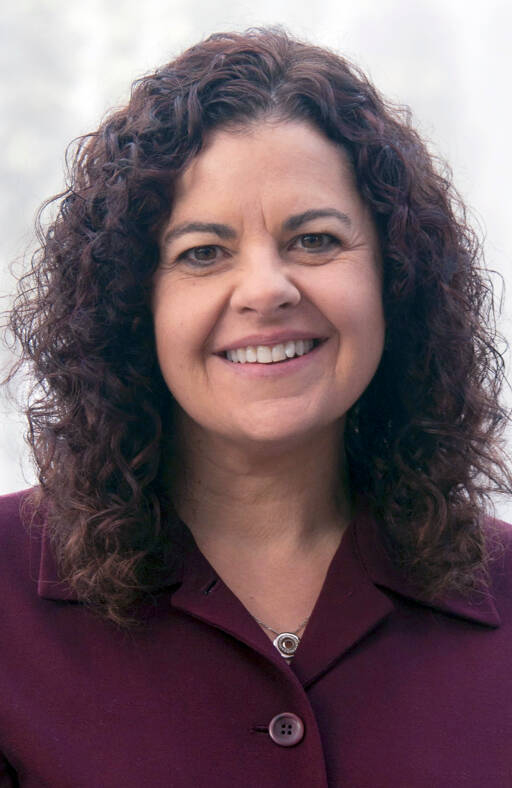PORT ANGELES — Today’s young people are more entrepreneurial, less trusting in institutions and endowed with greater confidence in their ability to succeed without a college degree than their peers of 20 or more years ago.
It is a trend that started before the pandemic, said Peninsula College President Suzy Ames, but “COVID threw lighter fluid on this dynamic.”
The result has been a decline in four-year post-secondary enrollment and an even steeper fall in technical and community college numbers.
Ames told a meeting of the Nor’Wester Rotary Club last Friday that Peninsula College has been actively working to create programs in partnership with local businesses that will both engage students and meet workforce needs.
Bringing students back into the higher education fold means meeting them on their own terms, Ames said, by appealing to their desire for flexibility with a variety of learning models; offering short courses for certificates rather than traditional programs that lead to associate’s degrees; and easing financial burdens with enhanced support.
While the college continues to hold classes on campus, it now offers HyFlex classes that allow students to access lectures online or in person to better accommodate their needs.
Building skills
To encourage students to enroll, the college is turning toward offering courses they can take to build skills at their own pace, rather than embarking on long-term commitments.
“We’re getting away from the idea that you have to spend two years in a program,” Ames said. “We want to ‘chunk up’ classes to give you the most salient education that our employers tell us they need. Then you can come back and get more education and dive deeper into it.”
Talking to local businesses has helped the college develop its courses, Ames said, such as its re-vamped automotive technology program that focuses on electric vehicles.
“I do believe that employers want new employees who have a base level of knowledge and skills we provide,” she said.
“We talked extensively with our local car dealerships and they told us they want folks who have a core basic knowledge of auto repair and electric vehicles, and then they’ll teach them more. Employers will then send their students back to us where they can take an in-depth class on how to program a car.”
Students also are receiving more financial assistance than ever before, Ames said, in the form of grants, scholarships and other support.
The Running Start for the Trades program provides hands-on learning, free tuition, and books and supplies to 11th- and 12th-grade students at Port Angeles High School to give them a jump on their careers.
“We also are really dedicated to directly serving our business community,” Ames said.
The college partnered with McKinley to obtain a $201,278 grant from the state’s Job Skills Program. The program funds half the cost to train new and current workers, while the employer matches the other half.
“We can do it at your employment site so you don’t have to take time away from your manufacturing line,” Ames said. “And we customize these programs specifically to meet the employer’s needs.”
Nevertheless, the Associate in Arts transfer degree remains the college’s most popular program, Ames said.
“It’s an amazing deal,” said Ames, who herself is a product of the community college system.
“It’s about one-third of the cost of your traditional university, there’s faculty that really want to teach, and they pay lots of attention to the students.
“And then you can go on to the big dogs.”
________
Reporter Paula Hunt can be reached at paula.hunt@soundpublishing.com.

